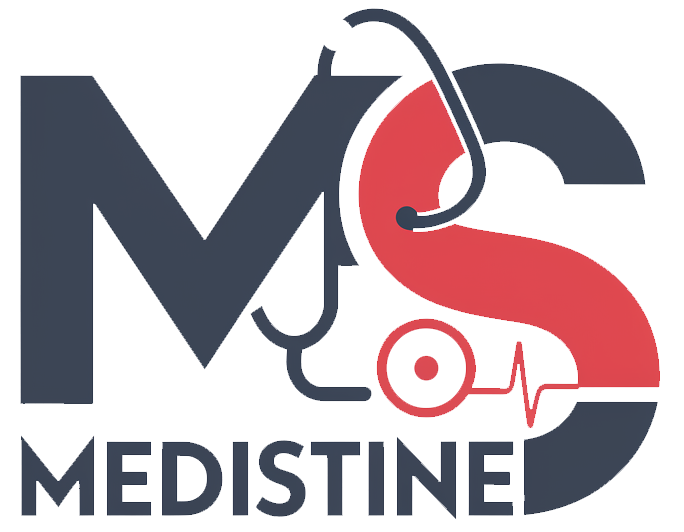Digitizing medical records is a process that greatly improves how healthcare is delivered. Today, over 96% of hospitals in the United States use Electronic Health Record (EHR) systems, a huge jump from just 9% in 2008. This change shows how important medical records digitisation is becoming.
One major benefit of digitizing medical records is better efficiency. Moving from paper to digital formats helps healthcare providers work faster and reduce time spent on administrative tasks. For example, digital records allow quick access to patient information, which is essential for timely diagnoses and treatments. A study on digitizing medical records shows that this efficiency not only improves patient care but also lowers the chances of errors that often happen with paper records.
Additionally, digitization makes patient information more accessible. Authorized healthcare professionals can instantly access complete patient histories, which is crucial in emergencies. Quick access to medical records can save lives by enabling informed decisions and personalized treatment plans. The Journal of Positive Psychology highlights that having immediate access to a patient’s medical history can greatly improve health outcomes.
Besides improving efficiency and accessibility, digitizing medical records also enhances security and compliance. Digital records help meet regulations like HIPAA, which protect patient privacy. By reducing the need for physical storage, healthcare organizations can save money and improve how they manage medical practices. The benefits of digitizing medical records also include better data management and increased patient engagement, as patients can access their records through secure portals, leading to a more collaborative healthcare experience.
Moreover, EHR systems support telehealth services, which are increasingly important in today’s healthcare landscape. As noted in a TechRadar article, digital records make remote consultations and ongoing patient monitoring easier, making healthcare more accessible than ever.
In summary, the digitization of medical records is not just a trend; it is a necessary evolution in healthcare that boosts efficiency, accessibility, and patient care. As healthcare providers continue to adopt this digital transformation, the focus will increasingly be on improving patient experiences and outcomes, leading to a more effective healthcare system.
1. Enhanced Efficiency and Productivity
The digitization of medical records is changing healthcare by significantly improving efficiency and productivity in various medical settings. Today, over 96% of hospitals in the U.S. have adopted an Electronic Health Record (EHR) system, a remarkable increase from just 9% in 2008. This shift highlights the growing recognition of the benefits associated with medical records digitisation.
One key advantage of digitizing medical records is the improved operational efficiency it provides. By moving from paper to digital formats, healthcare providers can streamline administrative tasks, cutting down the time spent on paperwork. For instance, digital records allow for faster access to patient information, which is crucial for timely diagnoses and treatment. According to a study on digitizing medical records, this efficiency not only enhances patient care but also reduces the risk of errors linked to traditional paper records.
Moreover, digitization improves accessibility to patient information. Authorized healthcare professionals can retrieve complete patient histories instantly, which is vital in emergencies. This immediate access can be life-saving, as it enables informed decision-making and enhances the quality of care provided. The Journal of Positive Psychology emphasizes that having electronic health records readily available allows healthcare providers to keep their patients’ care up to date, ultimately leading to better health outcomes.
In addition to enhancing efficiency and accessibility, medical records digitisation also supports compliance with regulations like HIPAA, ensuring that patient confidentiality is maintained. Digital records reduce the physical storage needs of healthcare facilities, leading to long-term cost savings. As noted in the NCBI article, implementing EHR systems, while challenging, is essential for modern healthcare facilities, especially in resource-limited settings.
Furthermore, digitization promotes better patient engagement. Patients can access their medical records through secure portals, allowing them to take an active role in their healthcare. This transparency builds trust and improves the overall patient experience. The Digital Transformation of Healthcare emphasizes that digital health records not only enhance diagnosis accuracy but also tailor treatment plans to individual patient needs.
In conclusion, the digitization of medical records is a critical step towards enhancing efficiency and productivity in healthcare. By adopting digital solutions, healthcare providers can focus more on patient care rather than administrative tasks, leading to a superior patient experience. As the healthcare landscape continues to evolve, embracing medical records digitisation will be essential for organizations aiming to improve their operational efficiency and patient outcomes.
2. Improved Accessibility and Collaboration
The digitization of medical records has transformed the healthcare landscape, significantly enhancing accessibility and collaboration among healthcare providers. With over 96% of hospitals in the U.S. now using Electronic Health Record (EHR) systems, compared to just 9% in 2008, the shift towards digital records is undeniable (ChartRequest). This transition not only streamlines processes but also fosters a collaborative environment where healthcare professionals can access patient information instantly, leading to quicker diagnoses and improved patient care.
One of the main benefits of medical records digitisation is the improved accessibility of patient data. Authorized healthcare staff can retrieve complete medical histories at the click of a button, which is crucial in emergencies where every second counts. This immediate access to information allows for informed decision-making, enabling providers to tailor treatment plans effectively (Record Nations). Moreover, digital records reduce the risk of errors associated with paper documentation, ensuring that healthcare professionals have the most accurate and up-to-date information at their fingertips.
Collaboration is further enhanced through the integration of EHR systems, which facilitate seamless communication among various healthcare providers. For instance, a well-implemented EHR system can streamline the exchange of health information, allowing different specialists to access and share patient data without delays. This interconnectedness is vital for coordinated care, especially for patients with chronic conditions requiring input from multiple healthcare professionals (NCBI).
Additionally, digitization supports compliance with regulations like HIPAA, which mandates the protection of patient confidentiality. By transitioning to digital formats, healthcare organizations can implement robust security measures to safeguard sensitive information, thus enhancing trust between patients and providers (TechRadar).
In conclusion, the benefits of medical records digitisation extend beyond mere convenience. They encompass improved operational efficiency, enhanced patient care, and a collaborative approach to healthcare delivery. As the healthcare industry continues to embrace digital transformation, the focus will increasingly shift towards leveraging these technologies to provide superior patient experiences and outcomes. For more insights on the advantages of digitizing medical records, check out the Digital Transformation of Healthcare article.
3. Enhanced Patient Care and Safety
The digitization of medical records is revolutionizing patient care and safety in healthcare settings. With over 96% of hospitals in the U.S. now using Electronic Health Record (EHR) systems, compared to just 9% in 2008, the shift towards digital records is not just a trend but a necessity for modern healthcare (ChartRequest). This transition enhances patient care in several significant ways:
- Improved Accessibility: Digitized medical records allow healthcare providers to access patient information instantly, which is crucial for timely diagnoses and treatment. In emergencies, having immediate access to a patient’s medical history can be life-saving. As noted in the Journal of Positive Psychology, EHRs facilitate better access to patient information, which is essential for effective treatment.
- Enhanced Quality of Care: Digital records streamline patient care processes, allowing healthcare professionals to focus more on patient interactions rather than administrative tasks. This efficiency leads to better patient outcomes, as providers can quickly retrieve and review comprehensive patient histories. According to Record Nations, digitizing medical records increases efficiency and security, ultimately improving patient care overall.
- Minimized Errors: One of the most critical advantages of medical records digitization is the reduction of errors associated with paper records. Handwritten notes can be misinterpreted, leading to potentially dangerous mistakes. Digital records ensure that healthcare providers have access to accurate and up-to-date information about a patient’s history, medications, and test results, significantly reducing the risk of medical errors (TechRadar).
- Streamlined Communication: EHR systems enhance communication among healthcare teams. By providing a centralized platform for patient information, these systems allow for better collaboration and coordination of care. This is particularly important in complex cases where multiple specialists are involved. The ability to share information quickly and securely can lead to more informed decision-making and improved patient safety (LinkedIn).
- Cost-Effectiveness: While the initial investment in digitizing medical records can be significant, the long-term savings are substantial. Digital records reduce the need for physical storage and minimize administrative costs associated with managing paper records. As highlighted by ChartRequest, healthcare organizations can redirect resources towards enhancing patient care rather than administrative overhead.
In conclusion, the digitization of medical records is a critical step towards enhancing patient care and safety. By improving accessibility, quality of care, and communication while minimizing errors and costs, healthcare providers can focus on what truly matters: delivering exceptional care to their patients. For more insights on the benefits of digitizing medical records, check out the full articles from Record Nations and TechRadar.
4. Advanced Data Analytics and Insights
The digitization of medical records is a transformative process that significantly enhances healthcare delivery. As of today, over 96% of hospitals in the U.S. have adopted an Electronic Health Record (EHR) system, a remarkable increase from just 9% in 2008. This shift underscores the growing recognition of the benefits associated with medical records digitisation. Here are some of the key advantages:
1. Improved Accessibility
Digitized medical records allow healthcare providers to access patient information instantly, which is crucial for timely diagnoses and treatment. According to a study on digitizing medical records, this immediate access enhances the quality of care by enabling healthcare professionals to make informed decisions quickly. In emergency situations, having comprehensive patient histories at their fingertips can be life-saving.
2. Enhanced Efficiency
The transition from paper to digital records streamlines administrative processes, reducing the time spent on tasks such as searching for and retrieving medical records. As noted in the Benefits of Digitizing Medical Records, this efficiency not only saves time but also minimizes the risk of errors associated with handwritten notes. By automating routine tasks, healthcare providers can focus more on patient care rather than administrative burdens.
3. Better Patient Care
Digitization supports improved patient care through timely access to medical histories and treatment plans. The Digital Transformation of Healthcare highlights how digital records facilitate informed decision-making and enhance diagnosis accuracy. This capability allows healthcare providers to tailor treatment plans effectively, ensuring that patients receive the best possible care.
4. Increased Security and Compliance
Digital records enhance the security of sensitive patient information. Compliance with regulations such as HIPAA is more manageable with electronic records, as they provide better tracking and auditing capabilities. The NCBI article on electronic health records emphasizes that EHR systems improve patient safety and outcomes by minimizing errors and ensuring that healthcare providers have access to up-to-date information.
5. Cost-Effectiveness
While the initial investment in digitization may seem significant, the long-term savings are substantial. By reducing the need for physical storage and minimizing administrative costs, healthcare organizations can achieve significant cost savings. The TechRadar review of EHR software notes that digitization allows for better organization and management of patient records, leading to more efficient operations overall.
In conclusion, the digitization of medical records is not just a trend; it is a necessary evolution in healthcare that enhances efficiency, accessibility, and patient care. As healthcare continues to embrace technology, the benefits of medical records digitisation will only become more pronounced, leading to improved outcomes for both providers and patients.
5. Enhanced Data Security and Compliance in Electronic Medical Records Digitisation
The digitization of medical records is a transformative step for healthcare providers, significantly enhancing data security and compliance. As healthcare organizations increasingly adopt Electronic Health Record (EHR) systems, the benefits of digitization become evident, particularly in safeguarding sensitive patient information and adhering to regulatory standards.
One of the primary advantages of medical records digitisation is the improved security it offers. Traditional paper records are vulnerable to physical damage, loss, or unauthorized access. In contrast, digital records can be protected through advanced encryption methods and access controls, ensuring that only authorized personnel can view sensitive information. According to a study on digitizing medical records, over 96% of hospitals in the US have adopted EHR systems, reflecting a growing recognition of the need for enhanced security measures in patient data management.
Moreover, digitized records facilitate compliance with regulations such as the Health Insurance Portability and Accountability Act (HIPAA). This legislation mandates strict guidelines for protecting patient information. By transitioning to digital formats, healthcare providers can implement automated compliance checks and maintain detailed audit trails, which are essential for demonstrating adherence to these regulations. The benefits of digitizing medical records highlight that electronic systems not only enhance security but also streamline compliance processes, reducing the administrative burden on healthcare staff.
In addition to security and compliance, digitization improves the overall quality of patient care. With immediate access to comprehensive patient histories, healthcare providers can make informed decisions quickly, which is crucial in emergency situations. The Journal of Positive Psychology emphasizes that EHRs enhance the accuracy of patient data, minimizing errors that can arise from miscommunication or illegible handwriting. This accuracy is vital for effective treatment and can lead to better health outcomes.
Furthermore, digitization reduces the physical storage needs of healthcare facilities, leading to long-term cost savings. By minimizing the reliance on paper records, organizations can allocate resources more efficiently, focusing on patient care rather than administrative tasks. As noted in the Digital Transformation of Healthcare, the transition to digital records not only enhances security and compliance but also promotes a more efficient healthcare delivery system.
In conclusion, the enhanced data security and compliance achieved through medical records digitisation are critical for modern healthcare providers. By adopting EHR systems, organizations can protect sensitive patient information, ensure regulatory compliance, and ultimately improve the quality of care delivered to patients. As the healthcare landscape continues to evolve, embracing digital solutions will be essential for maintaining high standards of patient safety and operational efficiency.
Overcoming Challenges in Medical Records Digitisation
The journey towards medical records digitisation is filled with challenges, yet the benefits far outweigh the hurdles. As healthcare providers increasingly adopt Electronic Health Record (EHR) systems—over 96% of hospitals in the US have made this transition compared to just 9% in 2008—understanding and overcoming these challenges is crucial for successful implementation.
1. Resistance to Change
One of the primary obstacles in medical records digitisation is the resistance from staff accustomed to traditional paper records. Many healthcare professionals may feel overwhelmed by the new technology or fear that it will complicate their workflow. To combat this, organizations should invest in comprehensive training programs that not only teach staff how to use the new systems but also highlight the benefits of digitisation, such as improved efficiency and reduced errors. According to a study on digitizing medical records, streamlined processes can significantly enhance operational efficiency.
2. Cost of Implementation
The financial investment required for transitioning to digital records can be daunting. Costs include purchasing EHR software, training staff, and maintaining the system. However, the long-term savings from reduced administrative costs and improved patient care can justify this initial expenditure. As noted in the Journal of Positive Psychology, digitisation minimizes physical storage needs and leads to better organization, ultimately resulting in cost-effectiveness.
3. Data Security Concerns
With the digitisation of medical records comes the responsibility of safeguarding sensitive patient information. Healthcare providers must ensure compliance with regulations like HIPAA to protect patient confidentiality. Implementing robust cybersecurity measures and regular audits can help mitigate these risks. The National Institutes of Health emphasizes that EHR systems can enhance security and compliance, making them a safer option than paper records.
4. Integration with Existing Systems
Integrating new EHR systems with existing healthcare technologies can pose significant challenges. Compatibility issues may arise, leading to disruptions in workflow. To address this, healthcare organizations should conduct thorough assessments of their current systems and choose EHR solutions that offer seamless integration capabilities. This approach not only streamlines operations but also enhances patient care by ensuring that all relevant information is readily accessible.
5. User Experience and Usability
The usability of EHR systems is critical for their successful adoption. If the software is not user-friendly, it can lead to frustration among healthcare providers, ultimately affecting patient care. Selecting EHR software that prioritizes user experience is essential. According to TechRadar, the best EHR systems are those that are intuitive and easy to learn, allowing healthcare professionals to focus on patient care rather than navigating complex software.
Conclusion
Overcoming the challenges of medical records digitisation requires strategic planning, investment in training, and a commitment to data security. By addressing these obstacles head-on, healthcare providers can unlock the numerous benefits of digitisation, including improved efficiency, enhanced patient care, and long-term cost savings. As the healthcare landscape continues to evolve, embracing digital solutions is not just an option; it is a necessity for modern healthcare delivery.
Conclusion: Embracing the Digital Future of Healthcare via Electronic Medical Records Digitisation
As we look towards the future of healthcare, the digitization of medical records stands out as a transformative force that is reshaping the landscape of patient care. With over 96% of hospitals in the U.S. now utilizing Electronic Health Record (EHR) systems, compared to just 9% in 2008, the trend towards medical records digitisation is not just a passing phase but a fundamental shift in how healthcare is delivered (ChartRequest). This transition offers numerous benefits that enhance operational efficiency, improve patient care, and streamline administrative processes.
One of the most significant advantages of digitizing medical records is the improved accessibility of patient information. Authorized healthcare professionals can access comprehensive patient histories instantly, which is crucial for timely diagnoses and effective treatment plans. This immediate access is particularly vital in emergency situations where every second counts (LinkedIn). Moreover, digitization minimizes the risk of errors associated with paper records, ensuring that healthcare providers have accurate and up-to-date information at their fingertips (Record Nations).
In addition to enhancing patient care, medical records digitisation also leads to significant cost savings for healthcare organizations. By reducing the need for physical storage and streamlining administrative tasks, healthcare providers can allocate more resources towards patient care rather than paperwork. This shift not only improves the overall patient experience but also supports compliance with regulations such as HIPAA, which protects patient confidentiality (NCBI). Also look at online medical second Opinion here on Medistine.
Furthermore, the integration of EHR systems facilitates better clinical decision-making through tools that guide healthcare providers in delivering optimal care. These systems allow for the standardization of care processes, which can lead to improved patient outcomes and safety (TechRadar).
In conclusion, embracing the digital future of healthcare through medical records digitisation is essential for enhancing efficiency, accessibility, and patient care. As healthcare continues to evolve, the benefits of digitization will only become more pronounced, making it imperative for healthcare providers to adopt these technologies. By doing so, they can ensure a superior patient experience and a more effective healthcare system overall. For more insights on the benefits of digitizing medical records, check out the full articles on ChartRequest and Record Nations.
Ultimately, the future of healthcare is digital, and those who embrace this change will be at the forefront of delivering high-quality, efficient, and patient-centered care.



